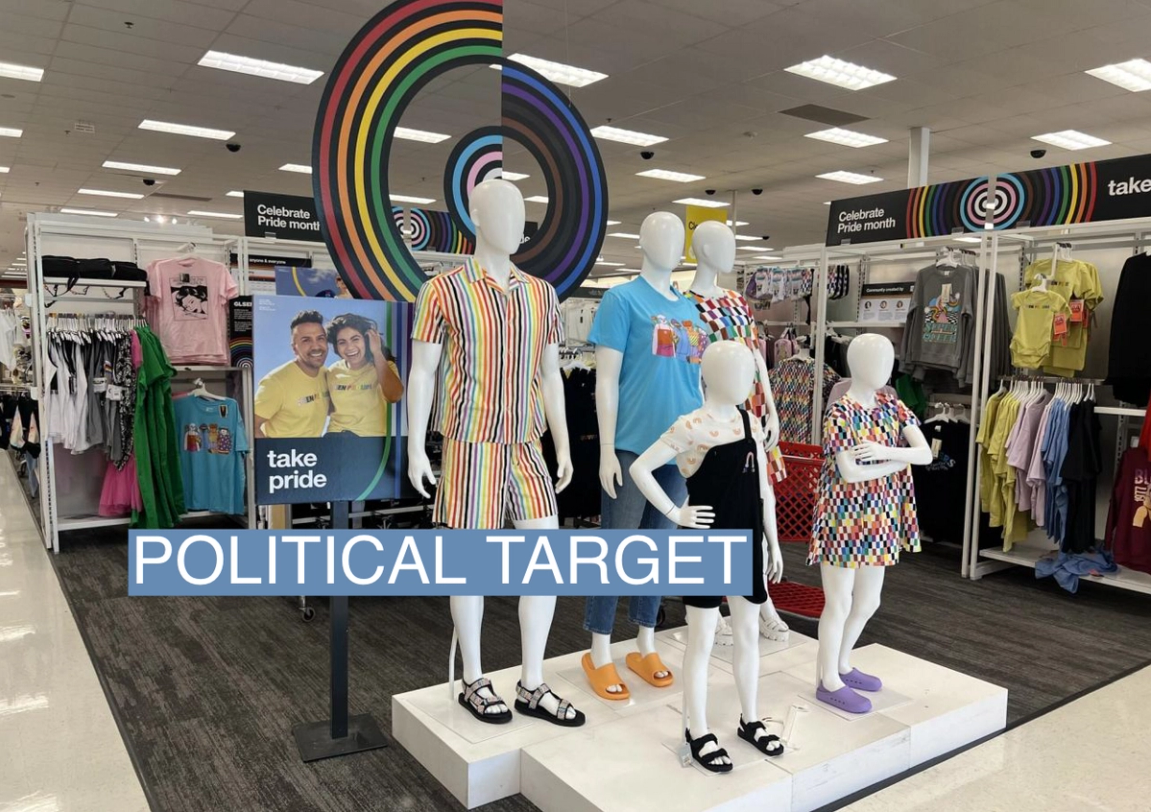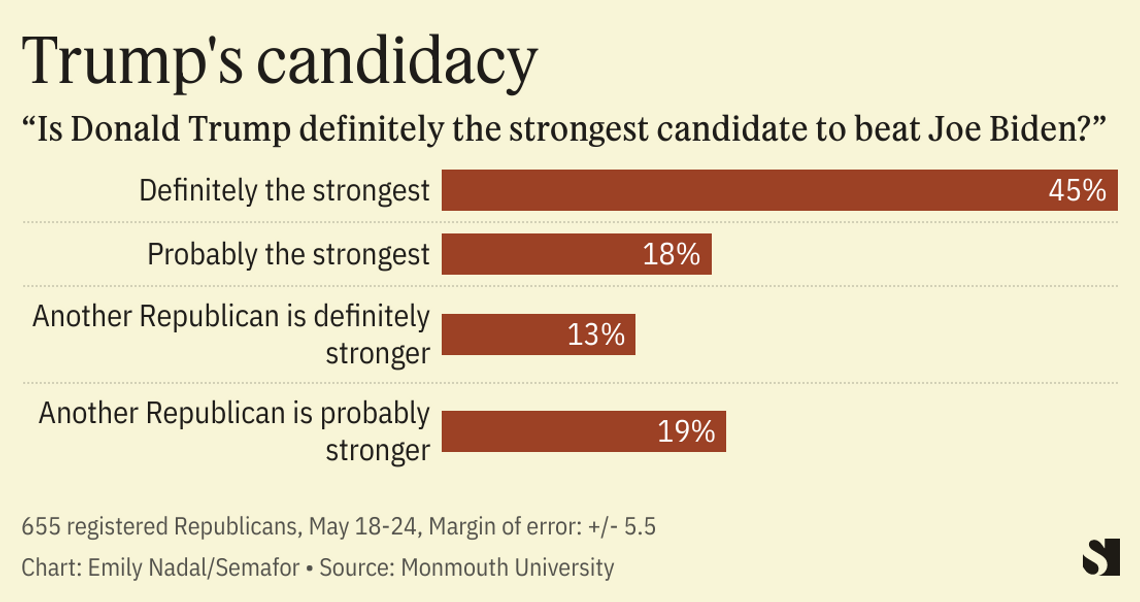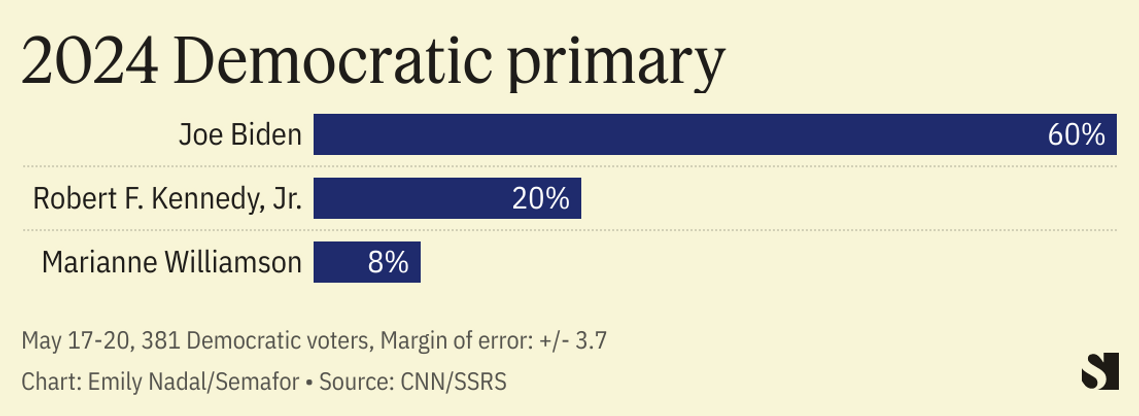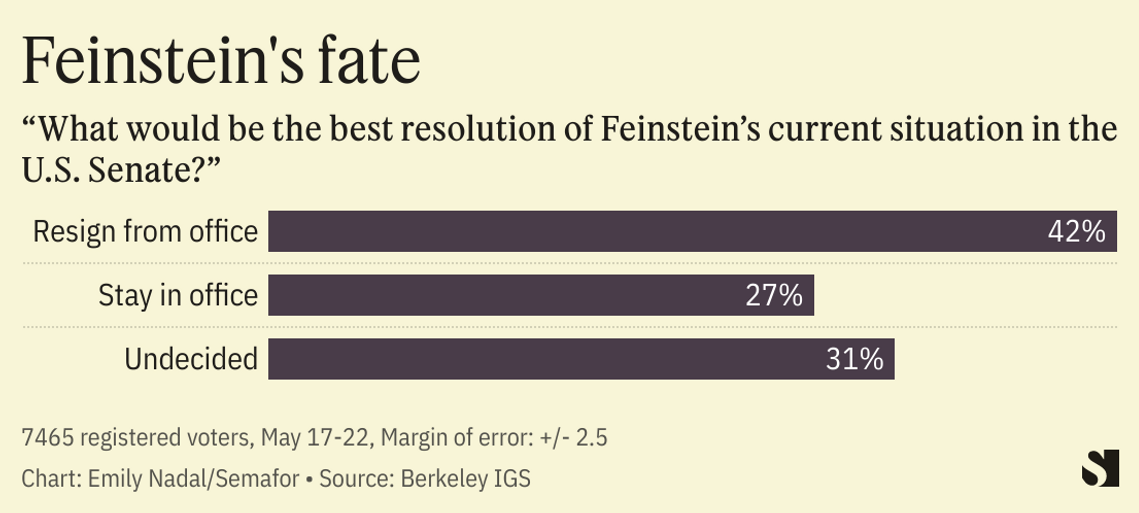 MediaPunch/Shutterstock MediaPunch/ShutterstockTHE NEWS On Saturday, California Rep. Robert Garcia told his state party’s LGBTQ caucus to be ready for a pride month fight. Conservatives were protesting Pride displays at Target, convincing the retailer to drop a transgender designer’s items. Members of Congress had called for a boycott of The North Face after the outdoors retailer featured a drag queen in its “Summer of Pride” campaign. Even the L.A. Dodgers had disinvited the longtime activist group Sisters of Perpetual Indulgence from a Pride Month award ceremony — then reinvited them, after progressives fought back. “We have to remember that pride started off as a protest,” said Garcia, who was the first openly gay mayor of Long Beach before winning his House seat last year. “It cannot just be a celebration anymore. We are being systematically attacked.” Energized by a boycott of Bud Light — and before that, by Ron DeSantis’s parental rights battle with Disney — social conservatives see this year’s Pride Month as an opportunity to make corporations pay for LGBTQ-friendly marketing, especially for products enjoyed by children. The goal is reversing a decade-long, market-chasing trend toward more LGBTQ visibility, and to “make that rainbow flag absolutely toxic,” as Daily Wire podcast host Michael Knowles told listeners last week. In the political arena, DeSantis has contrasted his approach to fighting “woke corporations” to Donald Trump’s, elevating the issue in the GOP primary. “I think a multi-billion-dollar company that sexualizes children is not consistent with the values of Florida, or the values of a place like Iowa,” DeSantis said of Disney, in an interview on “Fox and Friends” yesterday, referring to the corporation’s opposition to a law he signed that restricts classroom discussion of gender and sexual orientation. Whether or not they support him for president, Republicans increasingly support that mission. On his “Verdict” podcast last week, Texas Sen. Ted Cruz said there had been a “cumulative effect” from campaigns to boycott and damage brands, starting with Disney and continuing with Bud Light and Target. “They’re saying, we don’t want to be Bud Light. We don’t want to be Bud Light,” Cruz explained, citing reporting on how the protests had rattled corporations. “Well, you know what the next company is gonna say? We don’t want to be Bud Light or Target. We don’t want to be Bud Light or Target. That starts to get really powerful.” DAVID’S VIEW The boycott push is as straightforward as culture war gets. Pride month grew out of the 1969 Stonewall riots, and began as the Christopher Street Liberation Day Parade one year later — a public demonstration that gay people were part of society, like it or not. The backlash is largely about making LGBTQ people, particularly trans people, less visible. “What we did with Bud Light and Target comes right from Saul Alinsky’s Rules for Radicals,” Daily Wire host Matt Walsh told listeners before the holiday weekend, citing the left-wing organizer’s advice to pick a target, freeze it, and personalize it. “Every pride flag that a company takes down, or hides in the back of their store in shame, is a victory.” There have been many targets, and overlapping grievances. The drag-dressing Sisters of Perpetual Indulgence were accused of mocking Catholicism; Hershey’s “HerShe” campaign, in Canada, featured a transgender woman; Kohl’s was selling baby onesies with LGBTQ-positive messaging. The campaign against Target started when Walsh discussed “tuck-friendly” swimsuits being sold by the brand to transgender customers in “sizes for kids or for very, very, very small adults.” The false idea that the swimsuits were for children took off. Heritage Foundation scholar Sarah Parshall Perry, a general counsel at the Department of Education under the Trump administration, filmed herself visiting a Target to handle its LGBTQ-positive merchandise herself, noting that the tuck-friendly swimsuit was small and positioned “right next to a child mannequin.” The video for “Boycott Target,” which rapper Forgiato Blow released the same day as the Heritage clip, shows the “mayor of MAGAville” scouring the store for Pride merchandise. “Why they pushin’ agendas, promoting sexual genders?” Blow rapped. “I’m only rockin’ with Bruce, don’t rock with no Caitlyn Jenner.” That content simply wasn’t taking off a year or two earlier, which is one reason it’s grabbed so much attention and startled progressives. At the start of the Biden presidency, the corporate embrace of LGBTQ people and Pride celebrations had become so enthusiastic that it inspired protests calling for a return to the event’s real mission; jokes about Disney constantly (if awkwardly) announcing its “first” gay character; and a Saturday Night Live sketch where people enjoying their first post-COVID Pride weekend dance morosely on a Deutsche Bank float. But the corporate support was also hard-won. Target started selling Pride merchandise in 2012, after protests of the company’s donations to gay marriage critics convinced Lady Gaga to scrap a marketing deal. And mainstream businesses powered resistance to a “bathroom bill” passed in North Carolina and a religious freedom law in Indiana. Companies that marketed to LGBTQ consumers and allies — and employed them — opposed those laws, discouraging similar efforts for years. “They have to grow their market,” said Andrew Essex, a longtime marketing executive. “But there can be a myopia of the corporate boardroom — there’s so much enthusiasm that they can piggyback into cultural relevance, that they forget the idea might alienate their core audience.” Why the backlash now? Jon Schweppe, the policy director of the conservative American Principles Project, said that the debate had changed as the LGBTQ rights movement focused more on transgender rights and visibility. There were corporations who “wanted to show support for Pride,” he said, “but not wade into the trans kids debate.” DeSantis got credit, too, as did the burgeoning conservative media, and the new owner of Twitter — a multi-billionaire who’s rolled back restrictions on speech that mocks “transgender individuals.” Accounts like End Wokeness, with 1.1 million followers, are now making pro-LGBTQ products infamous (in between Musk-approved tweets about “interracial violent crime”) in ways that the prior ownership might have sought to prevent. “There’s no level of LGBTQ inclusion that they’ll tolerate,” said Ari Drennen, the LGBTQ program director at Media Matters. She pointed to the pummeling Bud Light got even after it issued a sort-of apology last month as evidence that brands had little to gain if they listened to the boycotters. “I personally don’t think that the 30 angriest people on the internet should dictate what products are available to consumers.” Meanwhile, the backlash to the backlash can be just as fierce. Groups like GLAAD and the Human Rights Campaign, which work with brands on how to market to LGBTQ consumers, have pilloried Target for de-listing and moving some Pride products, demanding a response that reaffirms their “commitment to the LGBTQ+ community.” It hasn’t come yet. “It’s not just the policies we’re looking for — we need businesses to match those internal efforts with public statements and action,” said Jared Todd, the HRC’s press secretary. “Right now, businesses who value and have worked with the LGBTQ+ community, businesses that openly support their LGBTQ+ employees, shareholders and customers, need to step up and speak out.” ROOM FOR DISAGREEMENT National Review Online editor Phil Klein tweeted that he doesn’t have a problem with LGBTQ-friendly Kohl’s onesies, drawing some ire from social conservatives. “I fear conservatives are imitating some of the worst instincts of the other side,” he argued in a follow-up piece. “Listening to conservatives discuss how every little thing — including a onesie — is inextricably linked to every aspect of the left-wing agenda reminds me of Oberlin undergrads complaining about ‘microaggressions.’” NOTABLE - Richard Hanania suggests that the boycott wave could “get by on emotions” by using social media to highlight offending products, even if its logic about the “sexualization” of children is largely a smokescreen for generalized opposition to LGBTQ acceptace. “As their critics allege, conservatives never truly internalized the belief in gay and trans equality.”
- Monica Hesse writes that “it’s not an option for transgender people to not exist,” and that taking a product off the display shelf “certainly doesn’t erase the people who would buy it.” Target “didn’t invent the market it is trying to serve; it’s responding to demand.”
| 





